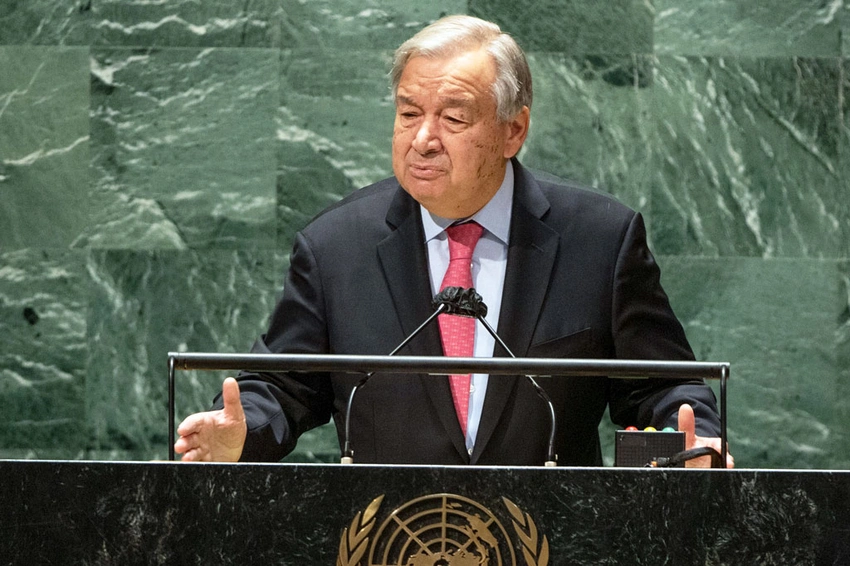UN Secretary-General António Guterres highlighted the escalating threat of rising sea levels to Pacific island nations, calling for immediate global action to address this crisis.

Global average sea levels are rising at rates unprecedented in the past 3,000 years, primarily due to greenhouse gas emissions from burning fossil fuels. The seas have absorbed over 90% of global heating in the past five decades, leading to thermal expansion and melting ice sheets. This has resulted in the ocean encroaching upon land, threatening coastal communities worldwide.
Pacific Islands on the Frontlines
Pacific island nations are uniquely exposed to the dangers of rising sea levels. With average elevations of just one to two meters above sea level, approximately 90% of their populations live within five kilometers of the coast, and half of all infrastructure is within 500 meters of the shoreline. Without drastic cuts to emissions, these islands can expect at least 15 centimeters of additional sea level rise by mid-century, leading to more frequent and severe coastal flooding. Source: UN News

Economic Implications
The financial implications for these nations are staggering. For instance, Kiribati, Tuvalu, and the Marshall Islands face adaptation costs estimated at nearly $10 billion, representing approximately 20 years of their combined gross domestic product. These costs encompass building sea walls, relocating communities, and other necessary adaptations to combat rising sea levels.

A Call to Action
Guterres emphasized that the crisis of rising seas is entirely of humanity’s making, primarily due to greenhouse gas emissions from burning fossil fuels. He called for world leaders to drastically slash global emissions, quickly phase out fossil fuels, and massively boost climate adaptation investments to protect people from current and future risks. He also highlighted the need for significant contributions to the new Loss and Damage Fund to support Pacific islands and other vulnerable countries.
The Need for Accountability
While the UN's call to action is clear, several pressing questions remain:
Developed nations have pledged financial support for climate adaptation, but is this funding being delivered promptly and effectively? Are there mechanisms to ensure accountability in these financial commitments?

Are global policies being enacted swiftly enough to reduce greenhouse gas emissions? What are the consequences if nations fail to meet their emission reduction targets?
For island nations facing the prospect of becoming uninhabitable, what long-term strategies are being developed? Is there a global plan to support potential climate refugees from these regions?
The plight of Pacific island nations serves as a stark reminder of the urgent need for global action on climate change. Addressing rising sea levels requires not only immediate mitigation efforts but also long-term strategies to support the most vulnerable communities. As Guterres aptly stated, "If we save the Pacific, we also save ourselves."
#ClimateAction #SeaLevelRise #PacificIslands #GlobalWarming #UN












The Pacific Islands are literally the canary in the coal mine for climate change. We need to take immediate action to address sea level rise before it's too late!